Recovery
“Log Cabin” leased by City of West Hollywood for sublet to recovery groups
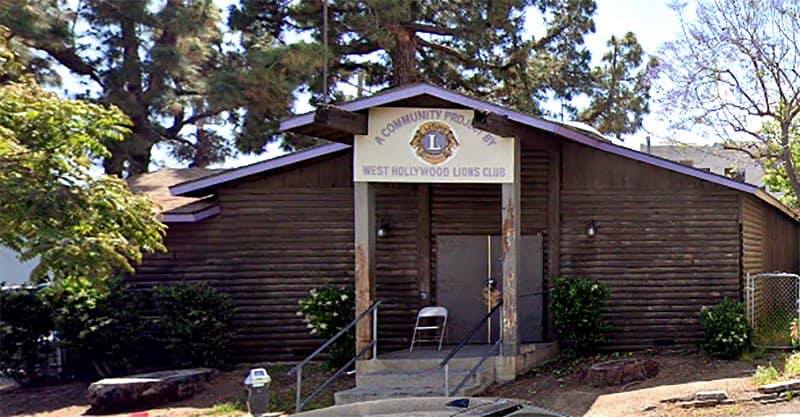
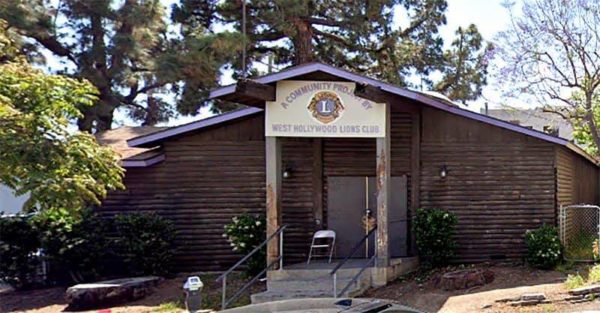
The City of Beverly Hills and the City of West Hollywood have reached an agreement regarding the property located at 621 N. Robertson Boulevard – also known as the ‘Log Cabin’ site – which is owned by the City of Beverly Hills but is located in the City of West Hollywood.
With an agreement signed this week, the City of West Hollywood will lease the site from Beverly Hills for a period of twelve months and intends to sublease the premises to the West Hollywood Recovery Center, which will continue to provide the same level of addiction recovery services currently offered at the site.
“We are thrilled to be able to secure this space to safeguard vital recovery services. Tens of thousands of people have been helped by the 12-Step meetings offered at the ‘Log Cabin’ and with the addition of the West Hollywood Recovery Center as the lead nonprofit we can count on another four decades of meetings and community recovery,” said West Hollywood Mayor John D’Amico.
“These meetings will remain a vital resource for the West Hollywood, Beverly Hills, and greater Los Angeles sober community. The City of West Hollywood has been committed to preserving access to services at this addiction recovery space and this lease agreement with our neighbors in the City of Beverly Hills is a testament to working together to address community needs.”
“We are pleased to have reached an agreement with our neighbors in West Hollywood to allow the crucial services at the Log Cabin to continue,” said Beverly Hills Mayor Lester Friedman.
The Lions Club of West Hollywood formerly leased the site, but that agreement is now expired. The City of Beverly Hills provided notice to the Lions Club to vacate the premises by March 31, 2020.
“We sincerely appreciate the work of the Lions Club over many years to support community organizations and provide valuable meeting space,” added Mayor Friedman.
Due to coronavirus (COVID-19) health emergency and Los Angeles County Safer at Home Orders, all meetings have been temporarily suspended at the site due to the need to accommodate social distancing requirements.
Community members may check for updates at http://thewhrc.org.
Press release report from the City of West Hollywood.
Recovery
Shining a light on the meth epidemic in the LGBTQ community
Breathe Life Healing Center is set to host the ChemSex Crisis Summit on March 14-15 in West Hollywood, California
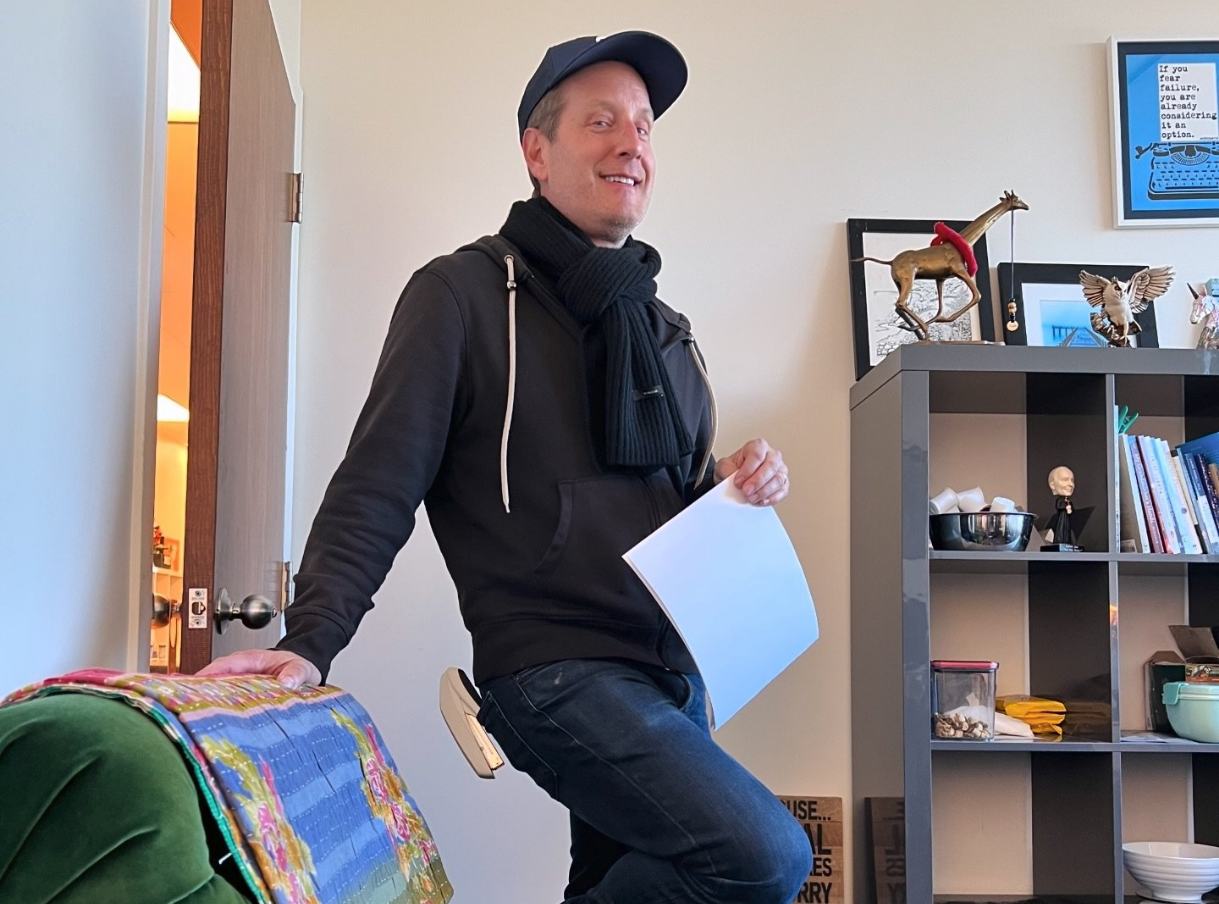
WEST HOLLYWOOD, Calif. — The silent epidemic of methamphetamine addiction in the LGBTQ+ community has reached a breaking point, leaving countless lives shattered in its wake. In response to this growing crisis, Breathe Life Healing Center is set to host the ChemSex Crisis Summit on March 14-15 in West Hollywood.
The event aims to bring together professionals to confront uncomfortable truths about addiction and exploitation, and to develop effective strategies for prevention, treatment and recovery.
The stories of those impacted by meth addiction paint a harrowing picture of the depths of this crisis:
Dr. J, a once-prominent epidemiologist, found himself on the wrong side of the statistics he knew so well.
“I knew the data inside and out — I just never thought I’d become one of those grim statistics myself,” he recounts ruefully.
His journey from a rising star in the world of public health to a homeless addict on the streets of LA is a testament to the insidious power of meth addiction. After earning his PhD and advising on policies at a prestigious government agency, Dr. J’s groundbreaking insights into the LGBTQ community’s health disparities propelled him to a renowned university to lead cutting-edge research initiatives. With a generous salary and a beautiful home in the Hollywood Hills, Dr. J felt like he had it all.
But beneath the veneer of success, he was struggling with his own demons. “At first, meth was just a way to let loose and have fun,” he admits. “But then it became a way to cope with stress, a way to make sex hotter, a way to make myself feel more confident.”
As his addiction spiraled out of control, Dr. J found himself slipping further and further away from the life he had built. Within two years, he had lost everything: His job, his home, his relationships. He found himself living under an overpass, his once-brilliant mind consumed by the never-ending cycle of addiction.
It was only when he hit rock bottom, facing the grim reality that more than 1,900 people died from meth in LA in 2021 alone, that Dr. J found the strength to seek help. Medically-assisted treatment and LGBTQ+-affirmative rehab became his lifeline, helping him to slowly rebuild his shattered life.
Filling the emptiness
Peter’s story is a cautionary tale of privilege and addiction.
Born into wealth, his trust fund enabled a bohemian lifestyle that quickly descended into meth addiction. “I became idle and depressed,” he recalls. “That’s when meth lit me up like never before.” His recreational usage quickly spiraled out of control, leading him to burn through his allowance and pawn valuables to feed his habit.
“I sold a Warhol for a fraction of its value and it’s now worth many times more than it was then,” he laments, shaking his head at the memory. It was only through the intervention of friends who urged his family to cut him off financially and force him to return home, that Peter was able to break free from the grip of addiction.
“Those first sober years were just brutal,” he admits. “I resented everyone and everything. I was HIV-positive in a tiny, conservative rural town and my health was in the gutter.”
Slowly, with the support of his loved ones, Peter began to reassemble the pieces of his life. He found solace in caring for his aging mother and threw himself into his recovery with the same intensity he once devoted to chasing his next high.
Today, 20 years sober, Peter is grateful for the second chance he’s been given. “I still think about meth sometimes, and the life I had in Hollywood,” he confesses. “But I know I’d be dead without the people who saved me.”
Trafficked
Perhaps most chilling is the story of Carlos, a young Colombian man who found himself trapped in a nightmarish cycle of exploitation and addiction after being lured to the U.S. with the promise of a better life. Upon arrival, he was taken to a lavish house party that quickly revealed itself to be a facade for a dark world of abuse.
“The gringos that arrived later were wealthy looking people and I was told some of them were politicians, businessmen, married men with families,” he recounts with a shudder. Behind their masks of respectability, these men had paid the house and the young men were on the menu.
Drugged with meth and then exploited by powerful men, Carlos found himself trapped in a vicious cycle of addiction and sexual slavery. Even after a daring escape, fleeing into the unfamiliar streets wearing nothing but torn underwear, he found himself pulled back into the clutches of the trafficking ring, his hopes for a better life shattered.
It was only when a stroke nearly claimed his life that he found the courage to seek help, but even then, the path to recovery was fraught with obstacles. As an undocumented immigrant, Carlos faced countless barriers to accessing the support and treatment he so desperately needed.
Fear of deportation and a lack of information about resources available to trafficking victims kept him silent, even as he struggled with the trauma of his experiences and the grip of addiction.
“I’m pretty sure the LGBTQ community isn’t aware of the grip the sex-trafficking network has on people like me,” Carlos says, his voice heavy with emotion. “I’m also sad about that because I know for sure concern is silenced and that people just look the other way. I guess it’s too messy to care about, but people are dying and being addicted and their lives ruined. Some people are even disappeared.”
Even when Carlos finally found the courage to seek help, he discovered that the path to justice was far from equal. As an undocumented immigrant, he faced countless barriers to accessing the legal protections and support services that could have helped him break free from the trafficking ring and rebuild his life.
Feeling hopeless and alone, Carlos made the difficult decision to return to Colombia, but even there, the shadow of the trafficking network loomed large, threatening him and his family. Today, he continues to grapple with the trauma of his experiences and the grip of addiction, a stark reminder of the urgent need for better protections and support for trafficking victims, regardless of their immigration status.
Examining the truth
These stories are just a few examples of the countless lives impacted by the meth crisis in the LGBTQ community. The ChemSex Crisis Summit aims to bring attention to this silent epidemic and work towards developing effective strategies for prevention, treatment and recovery.
“The ChemSex crisis is a complex issue that requires a multi-faceted approach,” says Brad Lamm, founder of Breathe Life Healing Centers and co-author of “Crystal Clear + Sexually Recovered” with Kathleen Murphy, executive clinical director of Breathe Life Healing Centers. “As these stories illustrate, meth addiction affects the entire LGBTQ spectrum, from the privileged to the marginalized. It’s one of the most urgent issues our community faces, and we must address it on every level — from the biological to the psychological to the societal.”
Murphy agrees. “We must address not only the biochemical effects of meth addiction but also the underlying traumas and social factors that contribute to it,” she explains. “Underlying childhood wounds from families and cultural institutions, from internalized homophobia — these are the roots that have to be healed.”
Melissa McCracken, a leading expert on substance abuse in the LGBTQ community, notes that many ChemSex users turn to substances, specifically meth, as a means to overcome fear and shame and to “hot wire” intimacy and connection.
“Queer sex education is lacking, and many folks do not learn courtship or intimacy skills in their formative years, resorting to drugs to engage with others,” she explains. “Meth also eradicates emotional consciousness, so the allure of a shame-free sexual experience is very enticing to many users who may not have the means or resources to seek out professional help to resolve shame, trauma, or internalized homophobia.”
McCracken also warns that the meth of today is not the same as it was 10-20 years ago, before the rise of cartel-produced “P2P meth.” “Not only is it more potent, but it is also manufactured differently, using different chemicals,” she explains. “The adverse effects of meth are more prevalent in P2P meth users, with upwards of 90 percent of those seeking treatment reporting psychosis, paranoia, anhedonia, isolation and ongoing mental health issues well into recovery.”
“We are seeing the effects of P2P meth in treatment that resembles long-term chronic use in folks who use the drug one or two times a month.”
The summit will feature a range of speakers and panel discussions, covering topics such as the role of trauma in substance abuse, best practices for LGBTQ-affirmative treatment, and strategies for supporting long-term recovery. Attendees will learn from leading experts in the field and connect with others working to address the crisis in their own communities.
But the work does not end with the summit. Organizers hope that the event will serve as a catalyst for ongoing action and advocacy, both within the LGBTQ+ community and beyond.
“We must come together as a community to demand change and to support those who have been marginalized and left behind,” says Murphy. “It is only by confronting the uncomfortable truths about addiction, exploitation, and inequality that we can begin to create a society where everyone has the opportunity to heal and thrive.”
Health
Recovery Incentives Act, confronting the Meth and Overdose crisis, passes state Senate Health Committee
This legislation will address the worsening methamphetamine addiction crisis facing the state
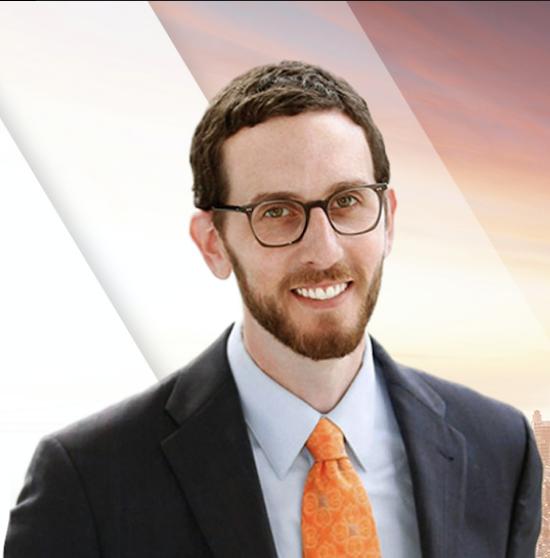
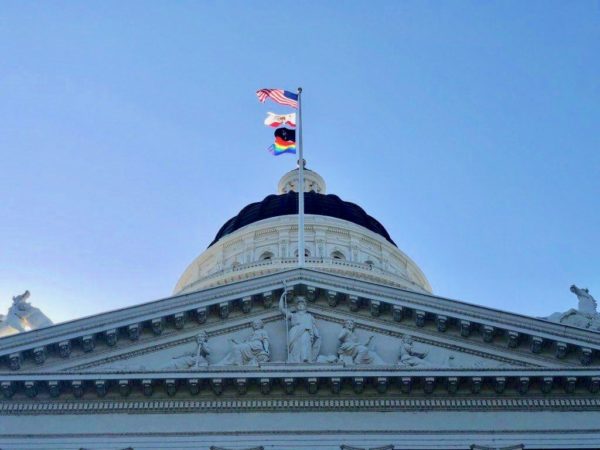
SACRAMENTO – Senator Scott Wiener (D-San Francisco)’s legislation, Senate Bill 110, passed the Senate Health Committee with a bipartisan vote of 10-0. This legislation will address the worsening methamphetamine addiction crisis facing the state.
The Recovery Incentives Act legalizes the substance use disorder treatment known as “contingency management,” and authorizes Medi-Cal to cover it. Contingency management has proven to be the most effective method of treatment for methamphetamine addiction, and is frequently used as a treatment program by the Veterans Affairs Administration.
This intervention program gives those struggling with substance use disorder financial rewards if they enter substance use treatment programs, stay in the program, and get and remain sober. This positive reinforcement helps people reduce and even fully stop substance use.
In the Biden-Harris administration’s new drug policy platform, increasing access to evidence-based treatment was slated as the number one priority. This includes contingency management. The platform cites the need to end “policy barriers related to contingency management interventions (motivational incentives) for stimulant use disorder” as part of its effort to expand evidence-based treatment.
There is currently no form of Medication-Assisted Treatment (MAT) for meth, unlike with opioids where treatment options such as methadone are available. Contingency management is thus a critical tool in addressing the meth addiction crisis.
According to the San Francisco Department of Public Health (SFDPH), since 2008, meth overdose deaths in San Francisco have increased by 500%. Additionally, 50% of psychiatric emergency room admissions at San Francisco General Hospital are now meth-related. These disturbing statistics demonstrate the urgency with which San Francisco and other communities must address this epidemic.
With drug overdose deaths on the rise across the country, the state, and in San Francisco — San Francisco had a record number of overdose deaths in 2020 — effective substance use intervention programs are more important than ever. In San Francisco, according to data collected in 2019, roughly 60% of all overdose deaths were meth-related.
Meth use has spiked all over California and in San Francisco, and worsened through the COVID-19 pandemic. With social isolation, mental health issues like depression, and economic suffering all worse for many than in prior years, meth use has also increased significantly.
Since COVID-19 was declared a national emergency on March 12th, The Hill reports that patients across the country “tested positive for methamphetamines at a roughly 20 percent higher rate between March and May than previous samples.”
Stimulant use has also grown rapidly in the LGBTQ and black communities, which were already deeply impacted by the meth crisis. The LGBTQ community — particularly gay, bi and trans men — have seen a rapid increase in meth use as a party drug taken to enhance sexual experiences. SFDPH also reports that the mortality rate is highest among African American men.
Programs like the San Francisco AIDS Foundation’s PROP (Positive Reinforcement Opportunity Project) program – in which LGBTQ men who used meth are given gift cards for staying sober – are found to be highly effective. According to the San Francisco AIDS Foundation, in one year of the PROP program, 63% of participants stopped using meth entirely and another 19% reduced their use. This approach, coupled with community support meetings, proves time and again to be an effective method of treating meth addiction.
Veterans Affairs hospitals throughout the state also use contingency management programs with success. This bill intends to make these programs accessible on a wider scale by authorizing them to be reimbursable by Medi-Cal.
The bill would also require the California Department of Health Care Services (DHCS) to issue guidance and training on the use of contingency management programs for Medi-Cal patients.
“Meth is ravaging our community, and we need to take a science-based approach to help people get healthy,” said Wiener. “Meth addiction is powerful and causes so much suffering. We need every tool available to deal with this crisis. Contingency management is not only an evidence-based treatment proven to help with stimulant addiction, but it can also be helpful for a wide range of substance use disorders. The Recovery Incentives Act provides a real way to support those who are struggling with meth and other substance use disorders.”
“The devastating meth crisis in our community has already claimed too many lives — robbed us of too many bright futures,” said Equality California Executive Director Rick Chavez Zbur.
“And it has been particularly devastating to LGBTQ+ men, especially Black men. I’ve watched loved ones battle addiction. I’ve seen their struggle and their pain. California ought to be doing everything we possibly can to combat this crisis, prevent overdoses and save lives — including contingency management. We’re so grateful to Senator Wiener for his leadership on this critical issue facing the LGBTQ+ community.”
Health
‘America Recovers’ podcast tackles trauma of pandemic
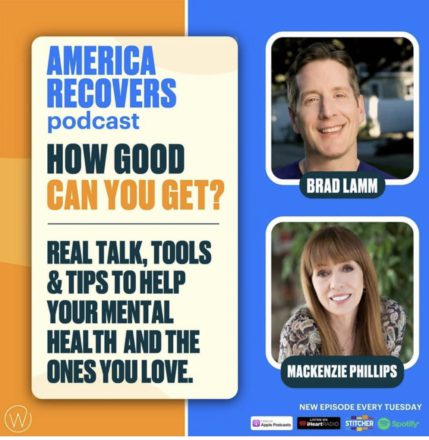
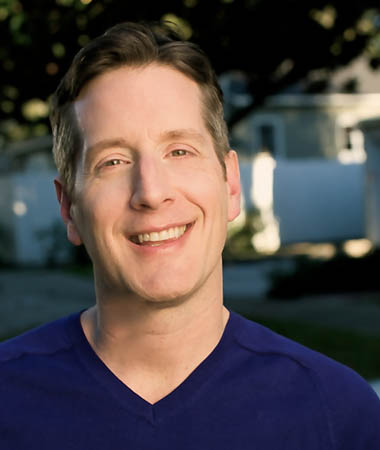
After a year of living under COVID-19, we’ve finally reached a place where we can breathe a little easier, knowing that a brighter, more-vaccinated future is well on its way – and with it, the promise of a return to normalcy.
Even if all the restrictions and isolation were to come completely to an end, however, normalcy is still a long way off. The pandemic has been a traumatic event on a global scale, and we are impacted like never before by alcohol and drugs, eating disorders, gaming and gambling, addiction to pornography, and other such harmful coping mechanisms. Since Covid arrived, alcohol and drug consumption alone is up by 500% in many cities, and the increase in additional mental health challenges like anxiety and depression is almost immeasurable. As eager as we may be for everything to be the way it was before, it must be acknowledged that there’s a lot of collective healing to do first.
Fortunately, we don’t have to do it alone. “America Recovers,” a podcast that made its debut on February 16, is there to provide a sort of “field guide” for listeners who need help mapping out their journey back to optimum mental and physical health. Designed to uplift listeners with stories of transformation, from crisis to clarity, it features real life interventions, stories of transformation and change, and headliner guests like Billy Porter, Carnie Wilson, and Stephen Baldwin, who share their own stories of resilience and personal growth.
The show’s hosts are Brad Lamm and Mackenzie Phillips – founder and program director, respectively, of Weho’s Breathe Life Healing Center. Lamm – who is widely called “America’s interventionist” – is an author and teacher who has written numerous books about recovery and is a regular contributor on “Today,” “Good Morning America,” and other shows. Phillips, of course, is known for her years as an actress, beloved for her role on the classic sitcom “One Day at a Time,” and her very public struggles with addiction during her youth (As she puts it, “My active addictions unfolded in a fishbowl for the whole world to watch”) led her not only to long-term recovery, but to work in the treatment field in order to help others find their way, too. Now a New York Times bestselling author and self-described “activist for healing and the reduction of suffering,” she continues to act (including appearances in the “One Day at a Time” reboot series and “Orange is the New Black”), but today her true calling lies in sharing her “experience, strength, and hope” at Breathe – and now, online with “America Recovers.”
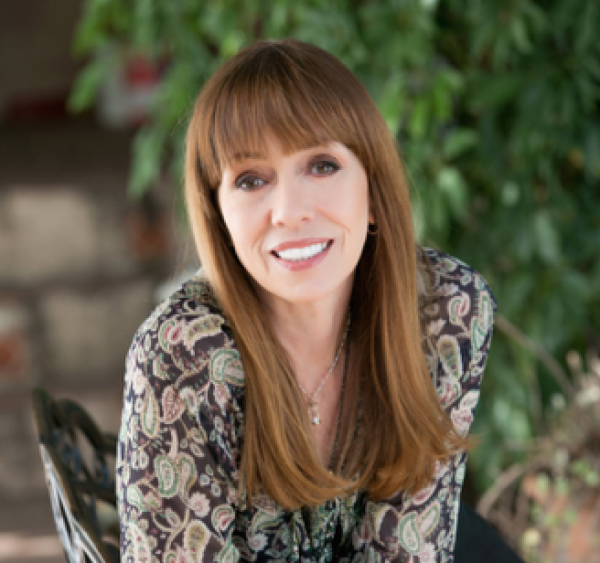
The two hosts took a few minutes to chat with the Blade about their podcast, and about meeting the moment with an eye toward trauma-informed solutions.
“Working in a trauma-based treatment center, and being a person and long-term recovery myself, the pandemic has hit really hard,” Phillips tells the Blade. “For a lot of people, their main outlet for recovery is in-person twelve-step meetings – that was sort of yanked out from under them, and seeing the rate of suffering and return to use has been overwhelming. And then you have to consider cases where, for instance, people who might be in a domestic violence situation are now trapped at home with an abusive partner – the amount of suffering, and the uptick in suicides and return to use has been devastating for our recovery community as a whole.”
Lamm concurs. “These twelve-step fellowships help so many people worldwide – they give us this relational model where we can hang out and hug and connect with each other in person — and that’s been totally disrupted because of the pandemic. And while it was quick to adapt to telehealth and Zoom and such, it’s different.”
“And now, with reopening happening and everything, it’s really exciting and all,” Phillips continues, “but the thing we need to remember is that trauma has echoes. The damage has been done and when you think about kids who haven’t even been in a classroom in over a year, there’s a generation of traumatized adults that we’re going to experience fifteen years from now. It’s a lot to take that in.”
Lamm explains that the need to reach the wider community served as an impetus in the development of “America Recovers.”
“We were pitching the idea around, and some folks said ‘hey, do you have anything that you could do right now on this moment we’re having,’ and I thought ‘well, yeah, actually we do.’ That’s how ‘America Recovers’ was born, out of that impetus of how might we equip a larger audience – because, you know, in almost eight years Breathe has treated over 2500 people, but in terms of those that need and are literally dying for help, it’s just minuscule. We thought a podcast from Westbrook, who has produced a big hit like “Red Table Talk” on Facebook, would be really useful to help us get these tools and tips to listeners, really a message of how they can get better.”
The resulting show gives the two hosts a chance to serve as the “connecting tissue,” as Phillips puts it, “between our guest stories and our listeners – inviting our listeners into a piece of our lives that connects to their lives that connects to the guest’s story – and I think that’s pretty powerful.”
It’s that connection – the sharing of stories and experiences that helps us form a sense of community with others – that has been a mainstay of twelve-step recovery all along. It’s also the one of the most effective ways of reducing stigma and fostering empathy around the issue of substance use disorder – something Lamm and Phillips also hope to do with “America Recovers.”
Phillips reflects on the progress that’s been made since she was “a young, budding addict” in her TV heyday. “I was a teenager on a hit show and they would say ‘we’re going to suspend you with pay, why don’t you go get well?’ And, I’d be like, ‘oh, okay,’ and then go get my teeth cleaned or something like that, and then I’d be like, ‘okay, I’m back.’ And after all these episodes of suspension and being told to go ‘get well’ without any tools whatsoever, I was fired, right? The climate has changed so much since 1975. There really wasn’t a lot of information and there was certainly a huge amount of stigma, and people just wanted you to go deal with it quietly elsewhere, where they didn’t have to look. Now we have this broader view of addiction as a mental health issue, where we invite people into their own wellness without taking away their jobs. I’m so glad that we’ve come that far.”
If you think you or someone you love could benefit from the kind of trauma-informed recovery strategies “America Recovers” brings to the public conversation, you can subscribe to the show through Apple and Google Podcasts, iHeart Radio, and Spotify. New episodes drop every Tuesday.
Local
Milo Yiannopoulos opening a conversion therapy facility is dangerous says LA Group
Conversion therapy always results in long-lasting mental, emotional, and sometimes physical harm
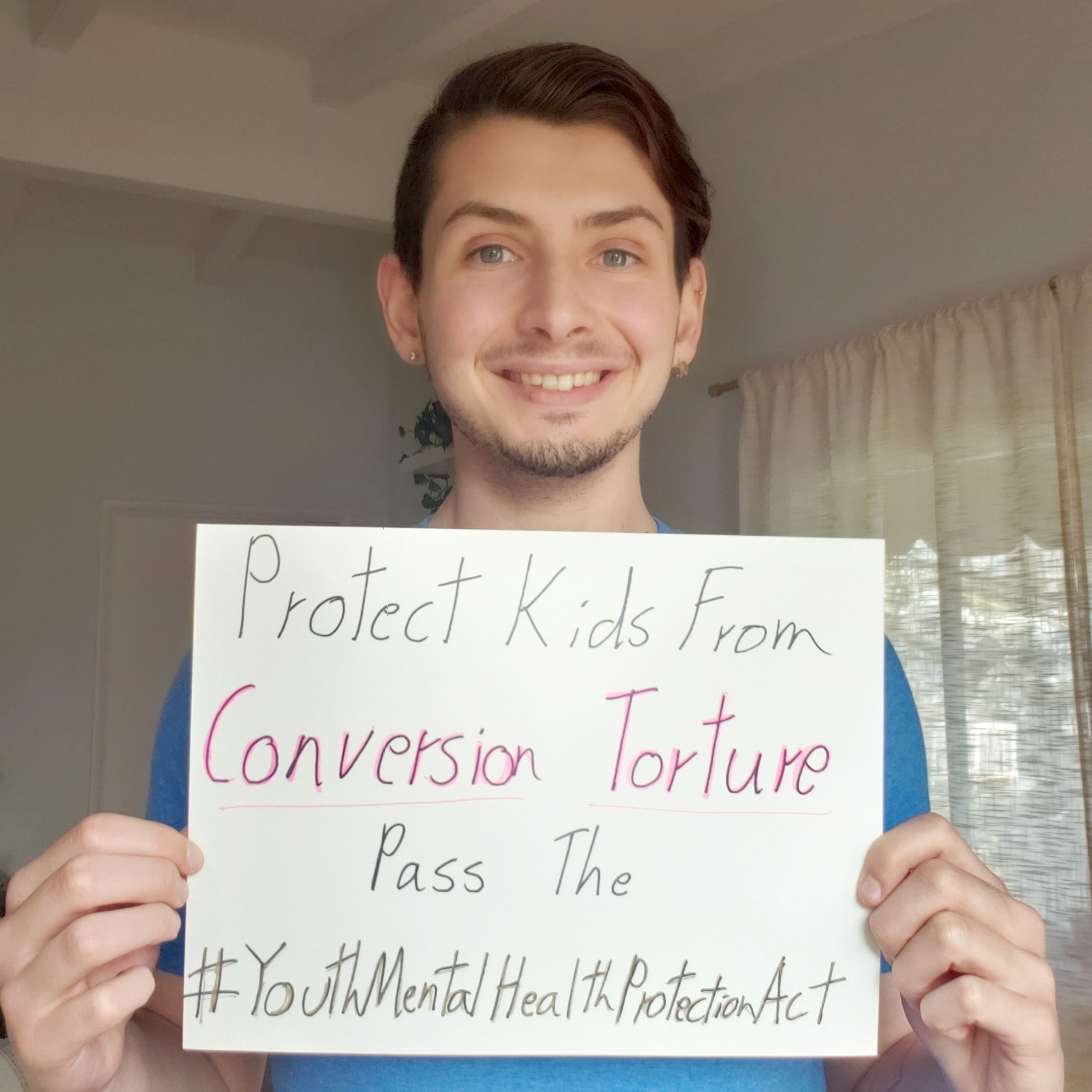
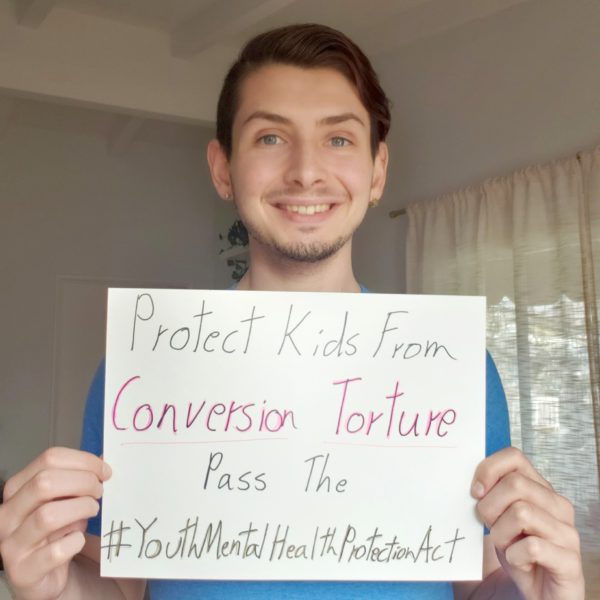
CENTURY CITY – The founder and president of the Los Angeles based Conversion Therapy Dropout Network (CTDN) is speaking out on the plans to open a conversion therapy facility in Florida by right-wing activist Milo Yiannopoulos.
CTDN’s Curtis D. Galloway spoke to the Los Angeles Blade Monday after an article was published by the New York Post who had conducted an interview with Yiannopoulos a former Breitbart News editor. According to the Post, Yiannopoulos revealed his plans to launch the “reparative therapy” clinic “to help other people go through the same journey that I’m on myself.”
Asked in what sense he is “ex-gay,” Yiannopoulos told The Post that he is in an ongoing process of trying to reorient his homosexuality, but for now is in a stage of abstinence and enjoys using the term to troll his critics.
Galloway noted, “Yiannopoulos states that he is currently fundraising to launch a reparative therapy program “to help other people go through the same journey that I’m on myself,” alluding to his current efforts to achieve a change in his sexual orientation. The Conversion Therapy Dropout Network strongly and fully condemns any attempt to create any sort of practice that aims to change the gender identity or sexual orientation of any youth.”
“‘Ex-gay’ is a silly expression but it has the virtues of slotting into a print headline neatly and absolutely enraging the opposition. Celibacy is a modest and achievable middle term goal; naturally, in the end, my aspiration would be to take it all the way,” Yiannopoulos told the Post.
“Yiannopoulos’ comments on what he sees as the ‘ridiculousness of condemning such a practice,’ citing what he described as the classic “gay agenda” he credits for the bad press around conversion therapy is typical deflection and placing blame,” Galloway said,
“His [Yiannopoulos] saying [that] “conversion therapy” and his fundraising- “ has been the easiest thing to raise money for that I’ve ever done. There is an enormous demand for this among people who believe they’ve been led astray by — it sounds silly to call it this — but you know, the gay establishment,” is offensive Galloway added.
“This in of itself is an attempt to monetize abusive torture. Many states recognize conversion therapy as such, as it has never been proven and has shown overwhelming results of harm. Conversion therapy always results in long-lasting mental, emotional, and sometimes physical harm,” Galloway stressed to the Blade.
“Basically, people who don’t believe in it call it ‘conversion therapy,’ and people who do believe in it call it ‘reparative therapy,’” Yiannopoulos told the Post then stated that “the gay lobby” was “so poisonous and wicked and evil,” Yiannopoulos added that “For those people to suggest that reparative therapy is somehow damaging to people’s self esteem, is so laughably preposterous, I don’t take it seriously,” he said.
“Yiannopoulos’ continuous arrogance to support his lifestyle of spreading hate and division has now led him down a very dangerous path; not for him, but for those who will believe the utter nonsense that is conversion or reparative therapy,” Galloway retorted.
“Those donating to this campaign have been grossly misled, and are likely unaware of the harm they are perpetuating. Make no mistake, what Yiannopoulos is proposing and fundraising for is nothing more than a money-making scam whose sole purpose is the abuse and torture of LGBTQ+ people,” Galloway told the Blade.
The Williams Institute estimates that 698,000 LGBT adults in the U.S. have received “conversion therapy,” 350,000 of whom suffered the experience as adolescents. Most medical and psychological professional associations strongly oppose “conversion therapy” as illegitimate.
The American Psychological Association has opposed the practice since 1998, arguing that there is “no credible evidence” such procedures proffered by adherents of the so-called therapy could change sexual orientation.
Conversion therapy has been banned in 20 states and more than 70 municipalities across the United States. California was first to do so in 2012.
AIDS and HIV
UCLA opens center for LGBTQ advocacy, research & health
LGBTQ populations have significant barriers in accessing and maintaining healthcare and treatment

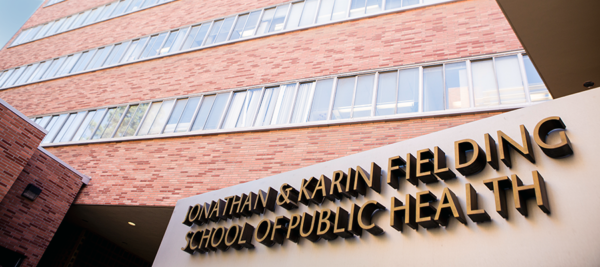
LOS ANGELES – The UCLA Fielding School of Public Health launched a new center to promote the health of sexual and gender minorities through research and partnerships with the LGBTQ community, community-based organizations, public health officials and policymakers in Los Angeles and beyond.
The Fielding School of Public Health’s announcement this past week noted that the new center, the UCLA Center for LGBTQ Advocacy, Research & Health, or C-LARAH’s plans include establishing a postdoctoral fellowship program and certificate program in LGBTQ health and awarding pilot funding to researchers so that they can generate initial data that can then be used in applications for larger government grants.
“Both here at home and around the world, LGBTQ populations have a higher prevalence and incidence of life-threatening physical conditions, mental health challenges, and certain chronic and infectious diseases, along with significant barriers in accessing and maintaining healthcare and treatment,” said the center’s director, Dr. Matthew Mimiaga.
Dr. Mimiaga is a tenured professor of epidemiology at UCLA and is widely known for his work with sexual and gender minorities. “C-LARAH and its partners will collaborate on research-informed ways to both reach members of this historically marginalized population and serve them holistically.”
Mimiaga, who was recently recruited to the Fielding School from Brown University, has worked for years with LGBTQ populations at the intersection of HIV, substance use and mental health and conducts research projects that span countries in Asia, Africa, Latin America and Europe.
Dr. Mimiaga also has close ties to leading LGBTQ organizations in Los Angeles and nationwide, and with Los Angeles being home of one of the world’s largest LGBTQ populations, Mimiaga indicated that C-LARAH is particularly well situated to join forces with a slew of highly regarded local organizations that serve and advocate for the sexual and gender minorities.
One of those, The Trevor Project, a nonprofit which provides suicide prevention and crisis intervention services for LGBTQ youth, welcomes the advocacy resources and interdisciplinary health research expertise C-LARAH will bring to LGBTQ communities — both locally and beyond.
“I’m excited for the UCLA Center for LGBTQ Advocacy, Research & Health to open its doors and help shape policies that directly impact the lives of LGBTQ young people,” said Trevor’s CEO and executive director Amit Paley. “Limited LGBTQ-inclusive research, plus the lack of systematic data collection on LGBTQ communities, can make it even more difficult to address the unique mental health challenges of LGBTQ youth and the obstacles to care that they face.
“The Trevor Project recognizes a clear need for greater investment in advocacy and research that can better inform public policies that support the needs of LGBTQ youth. We look forward to working with the center to educate policymakers, advocate for LGBTQ youth, and provide unique insight into their mental health.”
Los Angeles
Don Norman, beloved community activist, dead at 84
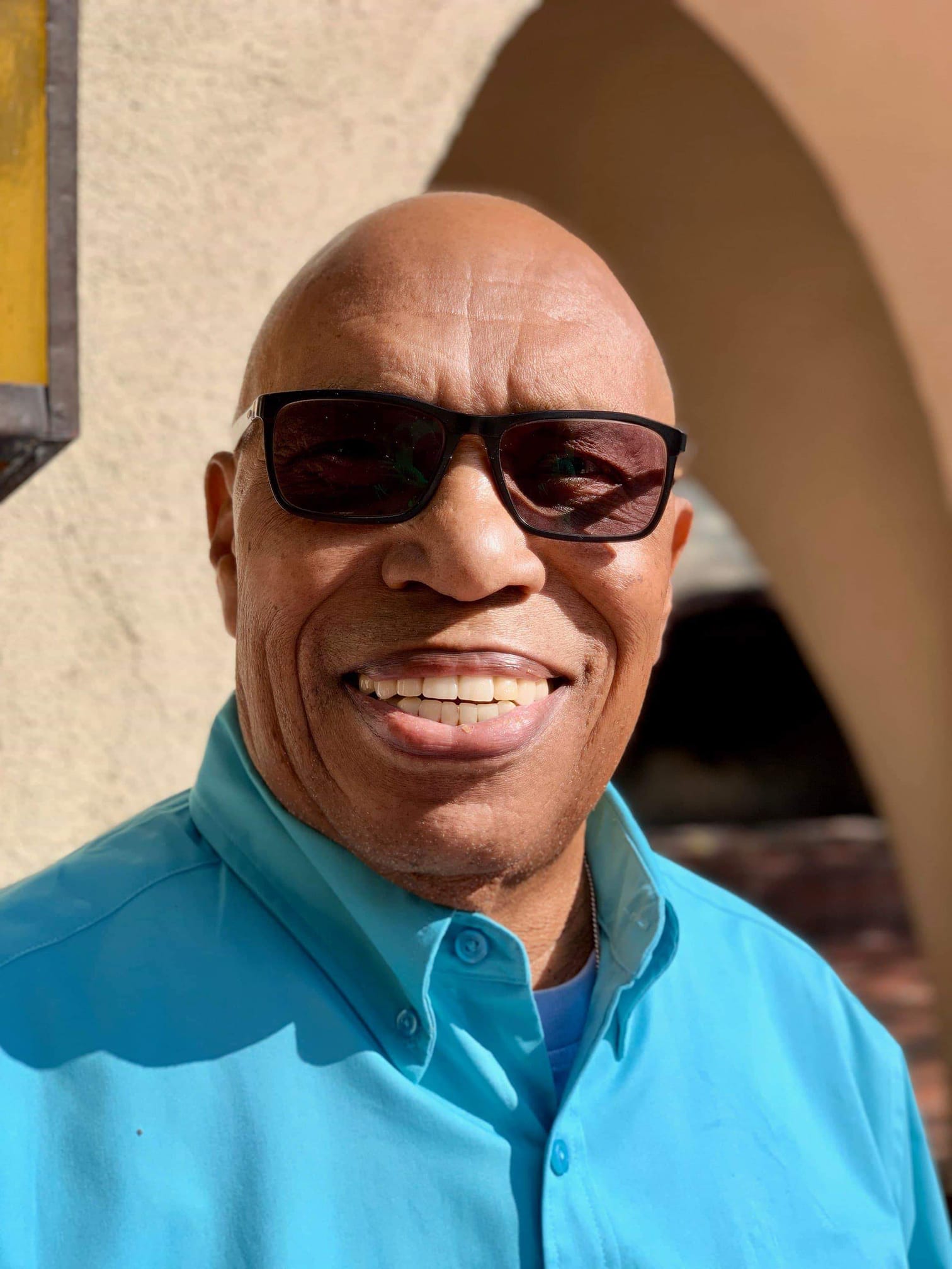
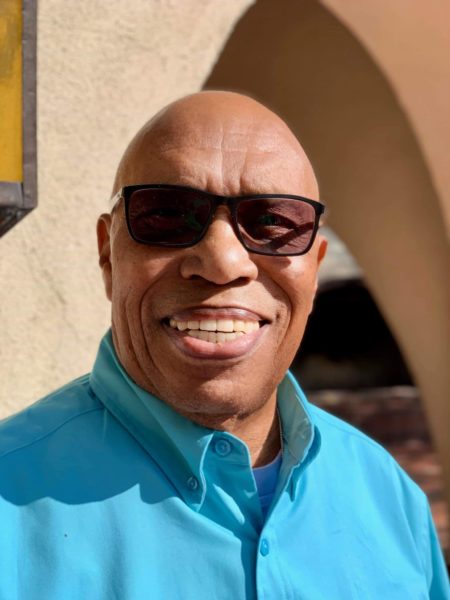
Don Norman will be forever missed. We are all better people for knowing his grace. His family is so inspired by the outpouring of love and support for Uncle Donald, and we are encouraged to know you will continue to spread the light and joy he gave to everyone he knew.” – Message of support from the family, Leon Baham and Joseph Vandenorth, grand nephews
Donald David Norman
On August 20, 2020, Donald “Don” David Norman, beloved community leader and chosen father of many, passed peacefully at the age of 84 at his home in Hollywood, California due to complications with Chronic Obstructive Pulmonary Disease (COPD).
Don was born on December 11, 1935 in Los Angeles, California to Charles Norman and Lucille Mackey Norman. He was a renowned motivational speaker, LGBTQ, AIDS and civil rights activist, and community leader who helped thousands battle alcohol and drug addiction and thrive in recovery.
Don was known by all as being selfless, quick-witted, and spiritual. Those that knew him can attest he was the essence of joy.
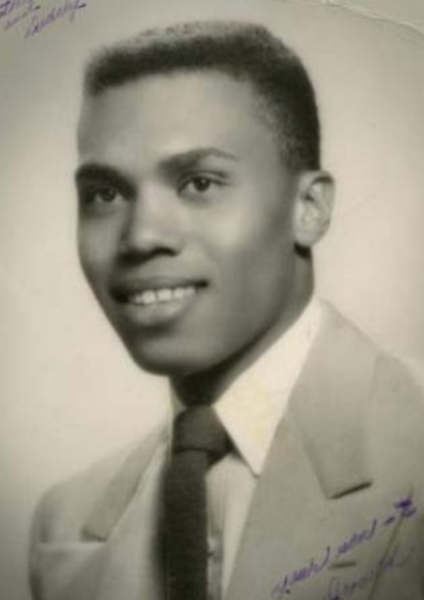
Don’s roots in Los Angeles ran deep. A descendant of Rev. Squire Norman Granville, a man freed from slavery on Juneteenth in Texas who then relocated the Norman family to Los Angeles in 1902.
Don’s talent for advocacy was established early in life. In the 1940s, he helped desegregate the Bimini Baths, the second largest public bathhouse on the West Coast. Intelligent and highly intuitive, he graduated from Belmont Senior High School where he was very active in various student body organizations.
Don briefly served in the United States Air Force where he faced racial and sexual discrimination and was discharged for being a homosexual—a charge that was later pardoned. Don later received a Bachelor’s in Psychology from International College of Los Angeles in 1984.
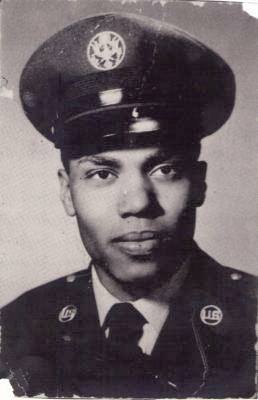
Even more than the typical youth, Don had a lust for life that took a darker turn when he developed a habit of substance abuse. His struggle with addiction culminated with discovering the Van Ness Recovery House on August 29, 1979—one of the first residential treatment centers serving the LGBT community. On his first day at the Van Ness House, Don read the entire Big Book and was galvanized to change his life. This transformative experience led Don to his life’s calling: to be a guide for thousands on their own path towards recovery.

In Los Angeles, there were not many LGBTQ people or people of color in 12 Step programs at that time. Don quickly became a leader and advocate, ensuring that any person of color and any LGBTQ person felt welcome.
After only years in recovery, Don began touring as a motivational speaker across the country and globe. While he became a household name in recovery circles, he always stayed dedicated to his core groups in Los Angeles. In 1994, when 12 Step programs again did not provide the space for the challenges faced by LGBTQ people, he helped establish a new recovery program in Los Angeles that now has meetings around the globe. Don was the speaker at the first meeting of that fellowship in 1994 and the keynote speaker at its first global conference fourteen years later in 2008.
Don spent decades working at Kaiser Permanente as a Chemical Dependency Recovery Counselor. Later in his career, he was the welcoming smile at the Los Angeles LGBT Center as well as the West Hollywood Recovery Center—an organization that he helped launch. In all of his roles, he was a “patron saint to lost souls”—a lighthouse that led countless people towards safety and healing. He also was passionate about the arts, often programming photography shows and classes.
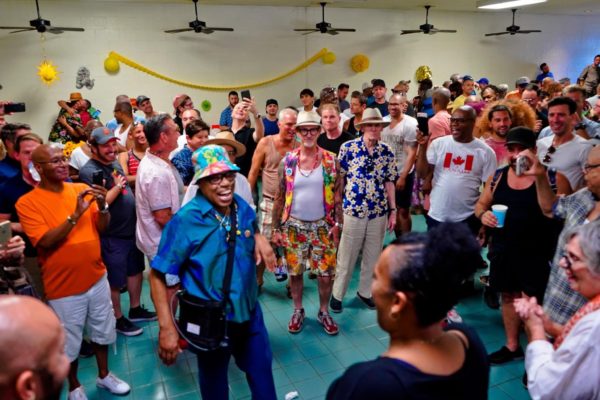
A worldly man with a talent for languages, Don frequently traveled to Mexico and Thailand with friends. Don was a spiritual seeker who practiced Christianity as well as elements of Hinduism and Buddhism, with a particular affinity for the Holy Mother and Quan Yin. Distinguished in his role as a speaker and spiritual counselor, Don married dozens of friends and family members.
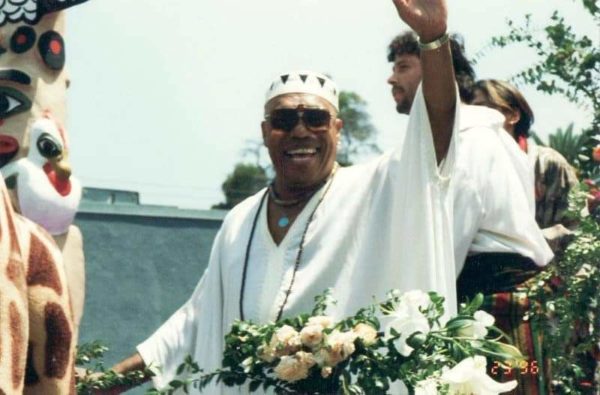
His talent for public speaking and oral history continues through his participation in several documentary film and radio programs, including “On These Shoulders We Stand,” “A Place to Live,” “Circus of Books,” and “RuPaul’s What’s The Tee Podcast.”
On August 29, 2019, he celebrated 40 years of sobriety at Griffith Park surrounded by hundreds of friends, great music and food, and memories of a happy lifetime.
Don is predeceased by his parents Charles Norman and Lucille Mackey Norman, brother Charles Jr. Norman, sister Lynette Louis, nephew Allin Norman, niece Debra Lopez Baham, Peter Nava (sponsor for over 30 years), many beloved cousins, as well as countless friends and victims of the AIDS epidemic.
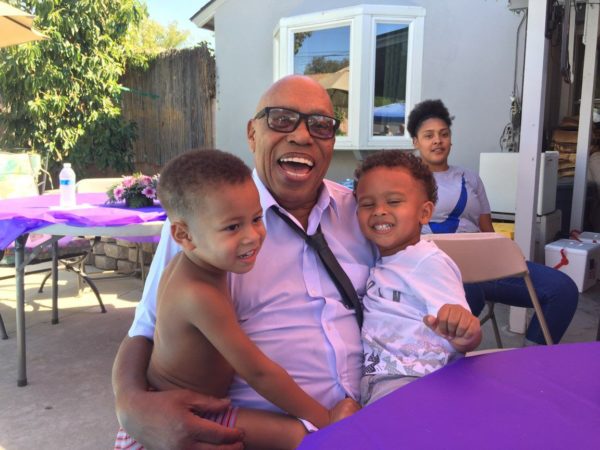
Don will be deeply missed by nephew Leon Baham (wife Korrie) and their children Leon Baham II (husband Joseph Vandenorth), Noel Baham, and Samantha Guzman; niece Kimberly Ellington and their children Brandon Ellington, Cecil Scott (children Vance, Zoey), Danaya Cain, Dyjuan Trice ( child Kaiden), and Tajahnique Trice; niece Sheryl Norman and their children Caya Norman (children Anielli, Eliyana) and Derek Fisher; Debra Lopez Baham’s children Shalynda Baham Sharp (husband Michael, children Alanah, Aysha, Michael Jr., Anthony), Charles Jimenz (wife Danielle, children Charles Jr., William, Joseph); Donald Lopez; Robert Lopez (wife Priscilla, children Robert Jr., Christian, Isaiah); nephew Mark Fleming and their children Bennita Fleming (children Lindsey, Nicholas, RJ) and Bianca Fleming. He is also survived by his cousins, including Consuela Alexander, Beverly Macklemore, Carolyn Hicks, Katie Mae Johnson, Janet Reeves, Natalie Wilson, Lewis Norman, and all of their children and grandchildren.
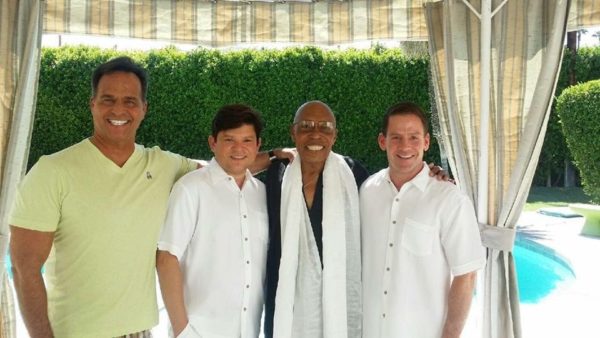
Beyond his biological family, Don is survived by countless members of his chosen family, including the hundreds of sponsees that he supported for decades through 12 Steps programs. Together, they will continue to spread the light and joy he gave to each of them.
Don will be cremated at the Hollywood Forever Cemetery and laid to rest in the Valentino Mausoleum—it is only fitting that he will remain in the heart of where he was so proud to call his forever home. A memorial service will be scheduled for close friends and family at a later time.
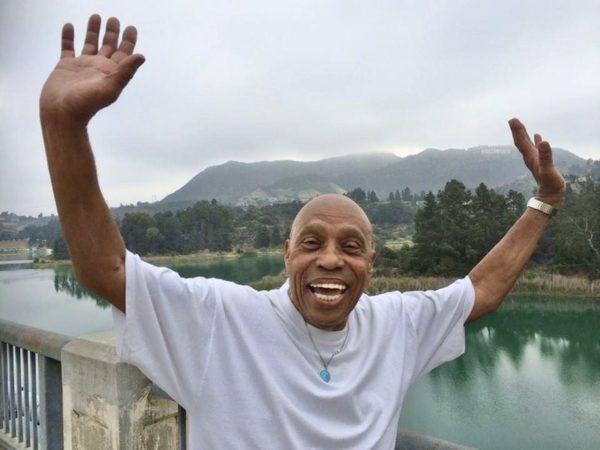
As Don told dear friends, “we all go to God in the end.” Rest in peace, dear uncle.
In lieu of flowers, donations can be made in Donald Norman’s name to the Van Ness Recovery House.
AIDS and HIV
Meth epidemic getting worse; researchers, community respond
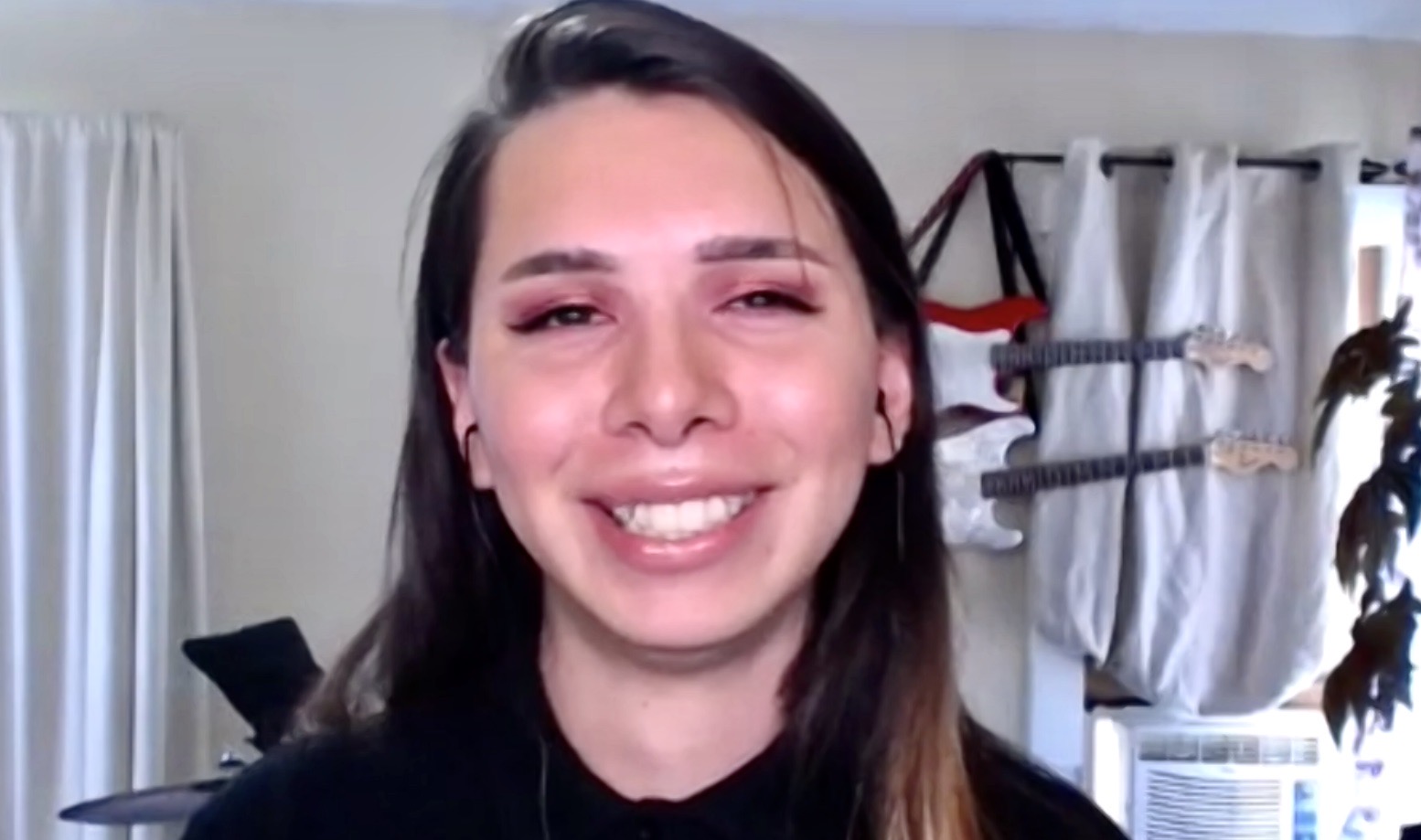
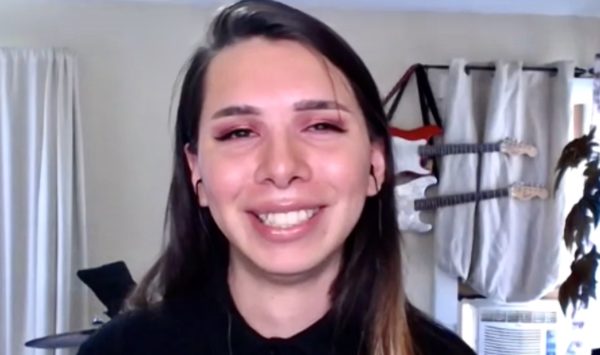
Ex-meth addict Joey Valladares shares testimony during Act Now Against Meth virtual roundtable on July 21, 2020
It may have been painful for him to tell the truth, but Donald Trump finally acknowledged that the coronavirus pandemic will probably “get worse before it gets better.”
The news is not surprising to elected and public officials in Los Angeles County where new cases of the coronavirus now average more than 21,000 daily. Deaths have passed 4,000, though there is still no data on how many are LGBTQ.
Some public health officials are looking through the intersectional lens of HIV/AIDS, STDs, mental health and substance abuse treatment and prevention, however. And on July 21, Richard Zaldivar, founder and executive director of The Wall Las Memorias, a non-profit LGBTQ Latino-focused community health and wellness organization, brought a number of those top professionals together for the Act Now Against Meth virtual roundtable.
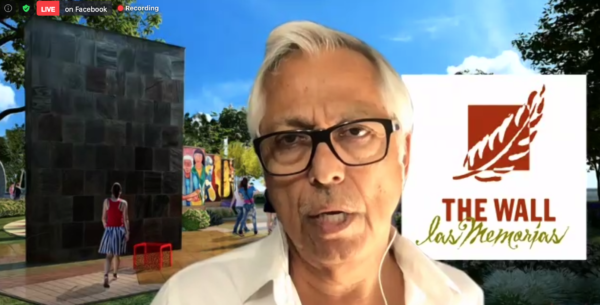
Richard Zaldivar, founder and executive director of The Wall Las Memorias
The important data-heavy discussion addressing HIV and the crystal meth crisis among queer, gay and bisexual men — men who have sex with men (MSM) —in LA County is on The Wall Las Memorias Facebook page.
Zaldivar noted that more than a decade ago, the Office of AIDS reported that “out of every five cases of AIDS in Los Angeles County, three of the five cases were attributed to crystal meth use.” A workforce was created, “but the workforce didn’t do anything.”
In response, The Wall Las Memorias helped create the Act Now Against Meth Coalition, which later brought a 10,000-signature petition to the Board of Supervisors. That yielded in $1.6 million in new funding for treatment and prevention.
But meth became lethal with the introduction of fentanyl. Last year, meth caused more than 1,000 sudden deaths in LA County. Between 2008 and 2017, emergency hospital admissions for meth rose by 604% in California.
Meth made headlines after the 2017 accidental overdose of Black escort Gemmel Moore and Timothy Dean in 2019 in white gay politico Ed Buck’s West Hollywood apartment.
LA County Public Health was poised to launch a new MethFreeLACounty.org campaign last March when COVID hit. The roundtable was intended to jumpstart a grassroots community-based response.
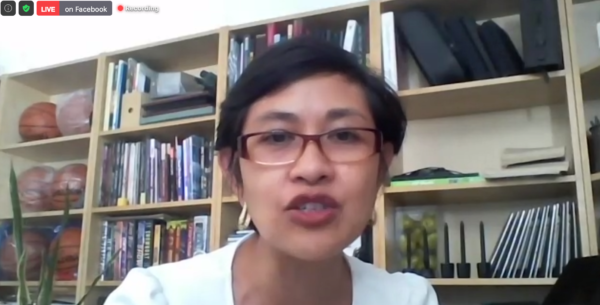
Cheryl Barrit, Executive Director of the LA County HIV Commission
Cheryl Barrit, Executive Director of the LA County HIV Commission, noted the disproportionate impact on Brown and black communities,” especially with the complicated intersections of Meth, HIV and COVID-19.
“We need to take charge of creating our own narrative moving forward on how to respond to this crisis,” she said.
Mario Perez, Director of the Division of HIV and STD Programs, immediately noted that “the gas pedal was sort of let go a little bit” on the response to meth. The community much reenergize around “the ongoing and quite frankly, worsening meth epidemic.”
In fact, he said, LA County is experiencing “a few epidemics. One is the HIV epidemic, the meth epidemic, and more and more, there’s a syphilis epidemic,” with the intersection of HIV and syphilis exacerbated by meth.
Added to that — a report in April showed that HIV positive meth users exposed to COVID “will have far worse COVID- related health outcomes,” Perez said. He presented data indicating that “those 2008 numbers that caused such an alarm are, in fact, worse,” concluding that “the impact of this drug is quite profound.”
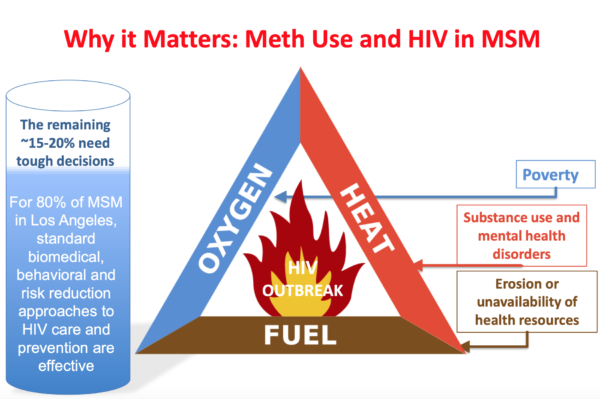
Graphic from presentation by Dr. Steve Shoptaw, Director of UCLA’s Center for HIV Identification, Prevention and Treatment Services (CHIPTS)
Also participating in the roundtable were Anders Corey, health deputy for Board of Supervisors President Kathryn Barger, who remember that 10,000-signature petition; Dr. Gary Tsai, SAPC Interim Director and Medical Director, who talked about counterfeit methamphetamine, the increase in hospitalizations and deaths; longtime addiction researchers Dr. Steve Shoptaw, Director of UCLA’s Center for HIV Identification, Prevention and Treatment Services (CHIPTS) and Cathy J. Reback, Friends Research Institution/UCLA, who talked about harm reduction, evidence-based biomedical interventions and the importance of meth users to stop smoking.
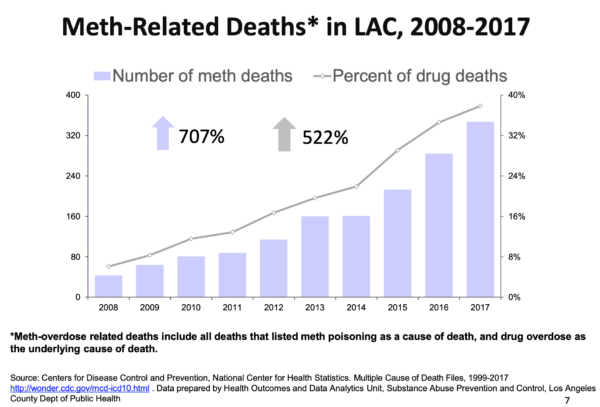
Graphic from presentation by Dr. Gary Tsai, SAPC Interim Director and Medical Director
The roundtable also featured powerful testimonies from Eric Dixon, who talked about meth and homelessness, and a young drag queen/community organizer named Joey Valladares, an example of an LGBTQ person who was lost to meth and found sobriety.
Joey never expected to touch meth after rough family experiences. “I knew that it was something that I could never touch because of it. I didn’t like who my brother became,” Joey shared. “I saw how it tears people apart.”
Then Joey met a random stranger at age 20. “He pulled out a meth pipe and began to smoke next to me and offered me a hit. At that point I had tried math twice at parties by accident. I didn’t like how it made me feel, so I was like, I don’t understand the hype behind this. I don’t know why people do it,” Joey said. But “I accepted and I took a hit of his pipe. And in that second and me doing it, it changed me for the rest of my life. It became an immediate problem. It was something that I thought about from that moment on.”
Joey found free meth meeting people through Grindr. “I lost sight of all my dreams and everything that I wanted in my life. It all became clouded in meth,” Joey said, spurning friends and family, drastically losing weight, getting meth skin and mouth. “I couldn’t stop.”
Lost, paranoid, wandering downtown barefoot, turned away for having that meth look, Joey had an epiphany.
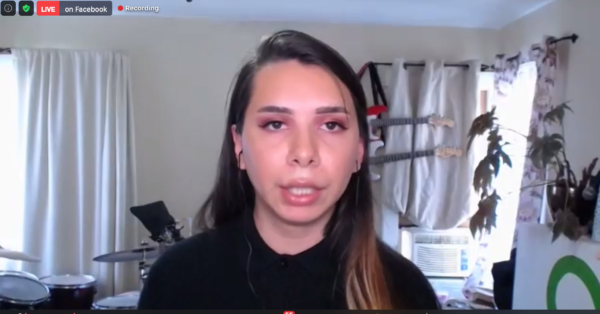
Drag queen/community organizer Joey Valladares
“I saw a really ugly side of humanity that day. And from that moment, I knew that if I kept smoking and if I kept getting high, I was going to really lose who I was as a person,” Joey said.
Family and friendly connections on Facebook enabled Joey to get help and build a support system.
Now, two years and eight months sober, Joey said: “Luckily, I’m really happy, but there are still so many people that aren’t — people that are still struggling. These conversations are so important and are really needed.”
For more on ACT NOW AGAINST METH, go to The Wall Las Memorias. Click here for the presentation by Dr. Steve Shoptaw and click here for the presentation by Dr. Gary Tsai.
Arts & Entertainment
‘SoBar’ sober lounge to launch in WeHo on Valentine’s Day
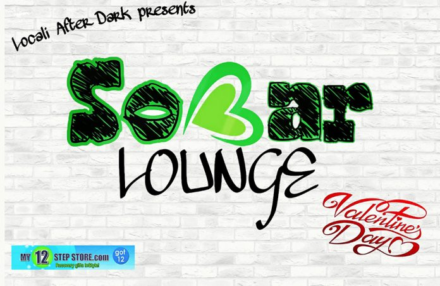
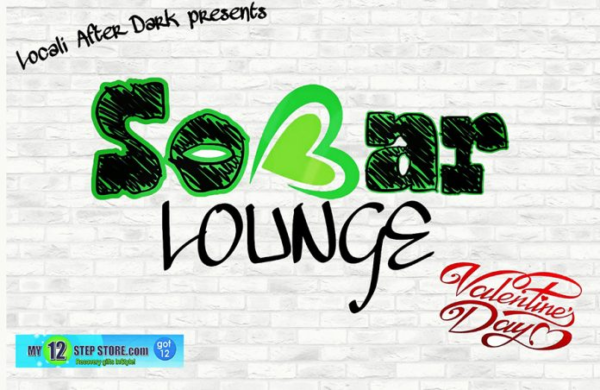
Sober nightlife in WeHo is about to get a giant boost, thanks to two of the community’s favorite local businesses.
Specialty recovery gift and bookstore My 12 Step Store is joining forces with next door eatery Locali to create SoBar Lounge, set to launch on Valentines Day.
Conceived as a safe space to eat, drink and socialize without the need for alcohol or other mind altering substances, SoBar Lounge is a weekly event set to take place every Friday night, with a live DJ will be on hand to provide a party atmosphere for mixture of late night shopping, music, food, desserts, coffee, and sophisticated mocktails.
RJ Holguin, the owner and founder of My 12-Step Store, told the Weho Times, “This is a great way to have a community social setting without the presence of alcohol and the growing cannabis environments this city is now so associated with.”
He elaborated, “Over the more than 16 years of service and our recent expansion of My 12 Step Store, shopping hours have evolved and we occasionally get requests to stay open later. So when Greg Horos of Locali reached out to us to create a project together that would be a great way to stay open for late night shopping, while working to support of each other, that’s how Locali After Dark’s SoBar Lounge began.”
Horos added his additional comments, “Locali is thrilled to partner with My 12 Step Store, to bring you SoBar, a new and exciting take on nightlife for Santa Monica Blvd. Our core focus has always been providing LA with healthier alternatives to conventional fast food, so branching out to include amazing mocktails in a lounge atmosphere for a community that is anything BUT conventional, is indeed very special. With the long-standing reputation and good will RJ and his team have built in the WeHo community over the years, we couldn’t ask for a more supportive neighbor to join in on the party. We look forward to everyone joining us for the kickoff date this Valentine’s Day at 8pm!”
Locali is an organic and natural gourmet deli and market catering to everyone from vegans to omnivores, with stores in Hollywood and Venice, in addition to its West Hollywood location. As their website proclaims, they offer vegetarian, vegan and/or gluten-free substitutions for almost any deli sandwich, along with “of the highest quality from animals that have been fed a vegetarian grain diet,” that are also free of antibiotics, hormones, fillers, gluten or casein. Their produce and ingredients are organic, “whenever possible,” and their locally made artisan breads are also vegan.
My 12 Step Store is a “one-stop sobriety shop” that has become a fixture in the heart of West Hollywood and ships worldwide, offering a wide array of books and specialty gifts geared toward those in the recovery community. In the words of Holguin, “Whether it’s addiction to alcohol, drugs, sex, love, food, meth or codependency, to list only a few, [we] have something for you and those you love.”
Talking with the Blade for the occasion of his store’s 15th anniversary in 2018, Holguin explained his reasons for opening the business, which initially started in Hollywood before it moved to WeHo after the building in which it was originally located was sold.
“I saw it as a way to give back to a community that I was a part of, both as a resident and as a person in recovery myself,” he said. “So, I opened a boutique-style store that would be welcoming and exciting to people who are clean and sober.”
Locali After Dark’s SoBar Lounge debuts Friday February 14, from 8pm-12am, at 8730 Santa Monica Blvd., and is scheduled to return every Friday after that.
Health
City of West Hollywood announces ‘Chemsex’ town hall forum
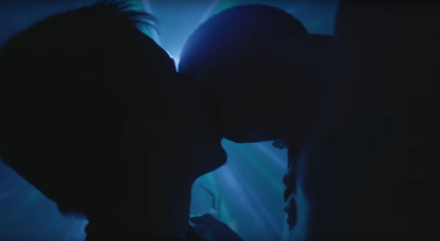
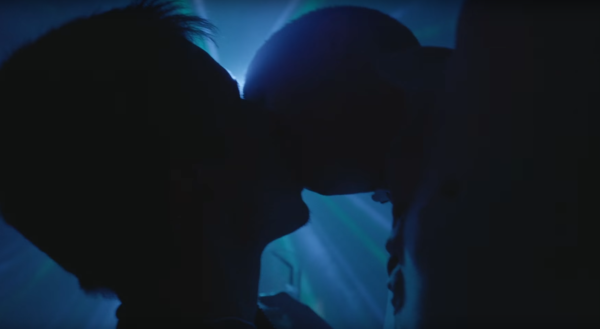
A still from the 2016 documentary “Chemsex” (Image courtesy Breaking Glass Pictures)
The City of West Hollywood announced on Wednesday that it will host a town hall forum next week addressing the issue of “Chemsex.”
In partnership with the Institute for Public Strategies, the City aims to provide information and raise awareness about chemical sex (“Chemsex”), and to promote harm reduction and sober sex among community members, with a special emphasis with men who have sex with men (MSM) and sex workers.
Chemsex, a term that originated in Europe that has begun to supplant the use of terms like “party and play” here in the US, is the use of substances such as meth, GHB, cocaine, or MDMA, among other substances, to facilitate or enhance sexual activity.
In a press release, the City cites studies finding that men who have sex with men may use drugs to help manage negative feelings, such as lack of self-esteem and confidence, internalized homophobia, or stigma about HIV status. The forum will include a panel of experts, including former Chemsex participants, and will facilitate an honest discussion about sex and the use of substances.
West Hollywood Councilmember John J. Duran commented, “West Hollywood is more than 40 percent LGBTQ and we are a sex-positive community. The reality, though, is that Chemsex […] comes with risks that can be deadly. We know that men who have sex with men are at disproportionate risk. The City of West Hollywood supports a wide array of direct services including substance use, recovery, and health and mental health services and we have a responsibility to engage in honest conversations about trends in our community that can lead to dangerous consequences. Talking with one another about Chemsex, reducing stigma, and raising awareness will help promote behavior change and harm reduction.”
The City of West Hollywood works through its Social Services Division to provide services to community members through agencies that provide substance abuse, recovery, and other health and mental health services. For additional information, visit www.weho.org/wehocares.
The Chemsex town hall forum will take place on Wednesday, February 12, 2020 at 7 p.m. at the City’s Council Chambers/Public Meeting Room, located at 625 N. San Vicente Boulevard.
Health
Fate of WeHo Log Cabin is at a confusing stalemate


For decades the building known as the “Log Cabin” located at 621 N. Robertson Blvd has served as an oasis for the Los Angeles sober community with 29 meetings held each week at the site.
But the property, while technically within the jurisdiction of West Hollywood, belongs to the City of Beverly Hills. And Beverly Hills wants it gone.
The building’s complicated history is murky at best. The Historic Architecture Database lists the date of construction as 1936, although other sources have given dates ranging from 1928 to 1939.
The Log Cabin happens to sit on top of a water well that serves Beverly Hills and the western edge of West Hollywood. According to West Hollywood Councilmember John Duran, it was this well that motivated Beverly Hills to purchase the property. They later allowed the Boy Scouts of America to construct the cabin on the site and for many years it was the headquarters for their Troop 27. They stipulated, though, that the cabin be demolished upon the troop’s vacation of the property.
That didn’t happen. Instead, the Lion’s Club moved into the building and signed a lease with the same demolition clause. At some point they began allowing the space to be used for other meetings. It is now utilized for various recovery groups.
The Lion’s Club, which reportedly has a president but no other noticeable representation in Los Angeles, still has control of the building. Their lease expired in 1977 and they are presumedly in a month-to-month agreement. The original lease required just one dollar a year in rent, but apparently not once in the 42 years since the lease lapsed has that dollar been paid.
The sudden interest by Beverly Hills appears to be monetarily motivated. In recent years commercial development has exploded along Robertson Blvd. Selling the property to developers would be profitable for the city. They have also sent site inspectors to the building who have found it in poor condition.
The Lion’s Club, or what is left of it, has been asked to vacate and demolish the building by March 31, per their original lease. This information was made public this weekend and the outcry was immediate. A petition has been started to save the Log Cabin.
Numerous dissenting social media and blog posts have been shared. The backlash has led to the City of West Hollywood stepping in to coordinate a solution with Beverly Hills.
On Monday, the two cities issued a joint press release saying, in part, that they are “in discussions to determine a shared approach to the current uses at the Log Cabin property.”
What that means and how that effects the eviction notice is yet to be determined. Beverly Hills is offering alternative locations to hold meetings, but West Hollywood will be doing their own site inspections.
The contrast in the statements between West Hollywood and Beverly Hills was subtle but pointed.
West Hollywood City Manager Paul Arevalo seemed to support saving the structure. He stated in the press release, “We are committed to continued availability of services. This space serves a significant and valuable role for the recovery community and we will examine all potential options.”
Meanwhile, Beverly Hills City Manager George Chavez’s comment appeared to fall on the demolition side. “Both cities recognize the important work that has occurred at the site and the countless lives that have been changed for the better. Our concern is the safety of those within the building,” he said.
It is the sober community that will be ultimately affected.
“I’ve been a member of the sober community for over 20 years,” Duran told the Los Angeles Blade. “And that building that some might see as an eye sore is integral to helping stop the use of crystal meth, alcoholism, the spread of HIV/AIDS and so many other issues related to addiction and recovery. To suddenly shut it down takes away an essential ingredient in the city’s addressing of these issues.”
There is limited space available for such meetings, with West Hollywood’s own Drug and Alcohol Recovery Center already booked solid each week. “I don’t think Beverly Hills understands how critical the Log Cabin is,” added Duran.
Right now, those affected by the turn of events are in a holding pattern. More information will be reported as it becomes available.
Photo of Log Cabin is a stock photo, via John Duran’s Facebook page
-

 a&e features5 days ago
a&e features5 days agoMusical Mondays, a mainstay in WeHo nightlife, celebrates 16 years
-

 National4 days ago
National4 days agoDiscredited former cop played ‘key role’ in deportation of gay make-up artist
-

 Arts & Entertainment2 days ago
Arts & Entertainment2 days agoA Night of legacy, love, and liberation: Inside the 2025 April Fool’s Ball
-

 Myanmar5 days ago
Myanmar5 days agoLGBTQ+ advocacy group joins Myanmar earthquake relief effort
-

 Arts & Entertainment5 days ago
Arts & Entertainment5 days ago‘Bring it to Brunch’ returns to West Hollywood
-

 a&e features5 days ago
a&e features5 days agoPeppermint thrives in the spotlight
-

 California4 days ago
California4 days agoSouth Park provides green space to a predominantly Latino community
-

 Arts & Entertainment3 days ago
Arts & Entertainment3 days agoSouth Coast Repertory Theatre hosting world premiere production
-

 Movies2 days ago
Movies2 days agoHeartfelt ‘Wedding Banquet’ remake a romcom worth seeing
-

 Brazil2 days ago
Brazil2 days agoUS lists transgender Brazilian congresswoman’s gender as ‘male’ on visa




